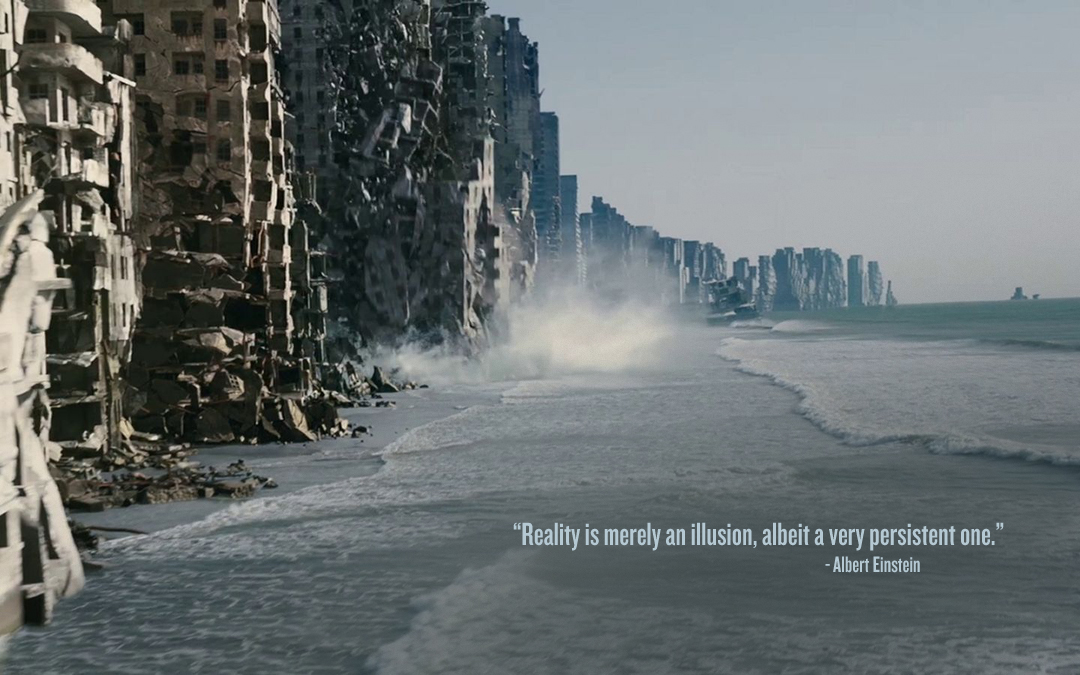What is really real? It is one of the most profound questions that the human mind can contemplate. In the groundbreaking 2010 film INCEPTION, director Christopher Nolan asked this very same question and the end narrative result was one of the most powerful, immersive, and compelling glimpses towards the answers and the complexity of the question itself. In his brand new fascinating book entitled Reality: A Very Short Introduction, philosophy professor and metaphysics researcher Jan Westerhoff tackles the question as well. One of the book’s most mindbending passages is the following, which explains the probability — the jarringly high probability, if all the math and hypotheticals check out — that you are dreaming right now:
Contemplating the possibility that you are dreaming right now is certainly very perplexing. You might think that it is also exceedingly unlikely, something in the same ballpark as hitting the jackpot in a lottery or suddenly dropping dead. There are various things that are theoretically possible, even though their probability is very low (such as a monkey randomly hitting on a typewriter writing out the complete works of Shakespeare, or the sudden disappearance of objets to to an effect called ‘quantum tunnelling’). If you don’t worry that this book might suddenly disappear from your hand due to some bizarre quantum effect, why worry that you might be dreaming right now?
The reason why you should worry is that the chances of you dreaming at this very moment are far, far greater. Let’s do a quick calculation. We optimistically assume that you get eight hours of sleep a night, which leaves sixteen hours during which you are awake. Sleep researchers have found out that there is a strong correlation between dreaming and being in so-called REM (rapid eye movement) sleep. REM sleep is characterized by rapid movement of the eyeballs; the brain is highly active, its electric activity resembles that of a waking brain, but the sleeper is more difficult to wake than during slow-wave or non-REM sleep. We know that between 2-% and 25% of our sleep is REM sleep. Taking the lower value and assuming that you always and only dream during REM sleep, this gives us 1.6 hours of dreaming ever night. As there are therefore 1.6 hours of dream consciousness for every 16 hours of waking consciousness, this means that your chance of dreaming at any given moment is 1 in 10. This quite a high probability — for comparison: the chance of winning the jackpot of a typical lottery is about 1 in 14 millions (this means that if you bought a ticket every week, you will have one win on average every 250,000 years); the chance of the author of this book dying in an accident within the next year is somewhat less than 1 in 2,500.
So there is a significant chance of you dreaming right now. But does it matter? To be sure, we can’t exclude the possibility that this is all a dream, but as long as it continues, it will not make the slightest difference to how we lead our lives. Even if the £5 note in my pocket is just dream-money, and the strawberry cake I but with it is only a dream-cake, I can still have the sensation of eating the strawberry cake as a result, and what more can I want? Even if I am dreaming right now, I will still be able to plan my life, cause will follow effect, and actions will have consequences. Of course, these consequences will just be dream-consequences, but given that we have assumed earlier that I would not be able to tell ‘from the inside’ whether I am dreaming or not, why should I worry about this? The world of experiences is still the same, and this is all that counts, after all.
You can purchase your own copy of Reality: A Very Short Introduction by visiting Amazon, and to learn more about Jan Westerhoff be sure to visit his website at JanWesterhoff.net. In the fall of October 2011, Westerhoff also participated in a brilliant Columbia University panel entitled Contemporary Perspectives on Buddhist Ethics, and you can listen to the podcast in full by CLICKING HERE.


